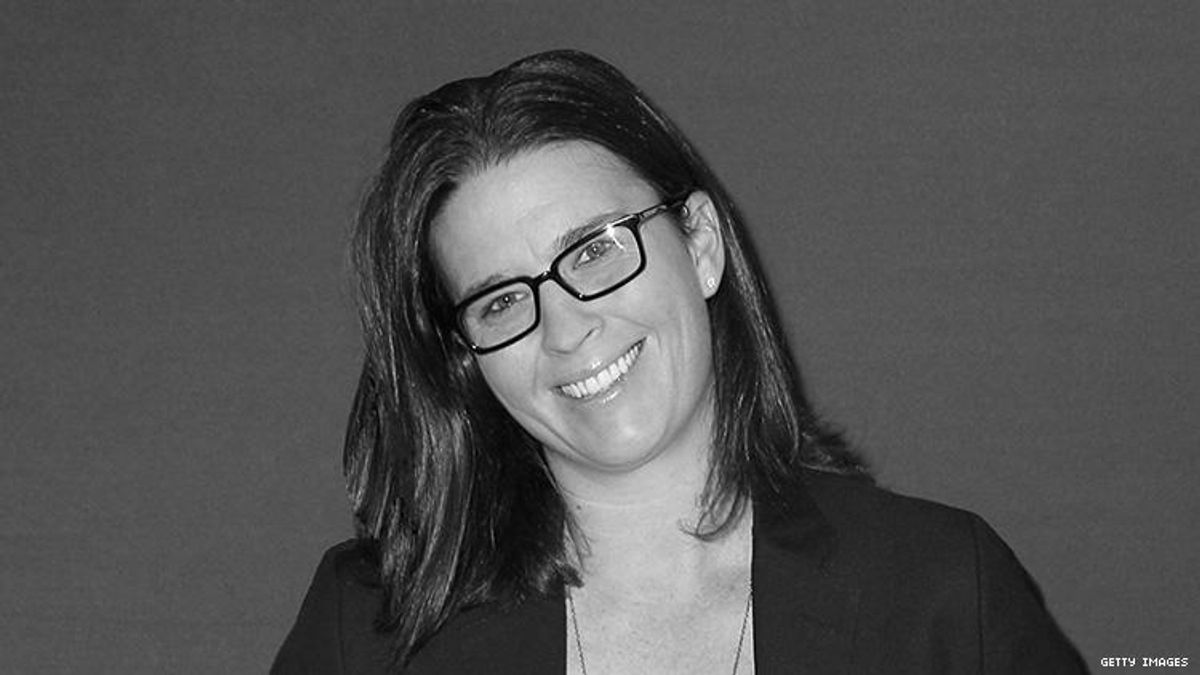
Ryan Pfluger
“I exist at the intersection of marginalization and privilege. I am queer — I am nonbinary — but I’m also white. Grappling with how to handle that as an artist — for my work to investigate a nuanced and complicated space — has been a long journey,” begins photographer Ryan Pfluger (he/they) in his introduction to Holding Space: Life and Love Through a Queer Lens, a revelatory new book of portraiture centering interracial LGBTQ+ couples.
In Holding Space, the meaning of the introduction is layered. The reader learns of the intent of Pfluger’s project — to explore intersectionality through photography of these subjects. But it’s also an introduction to Pfluger, who reveals that his career choice was influenced by an upbringing where he felt powerless. “My father a drug addict, mother an alcoholic. I was outed by my mother at 13 — an age when I didn’t even know what that meant for me. Control became an abstract concept that I was never privy to,” Pfluger shares.
“The driving force to be behind the lens though, was my instinctual desire for people to feel seen, thoughtfully and lovingly,” they add. “From my own experiences and of those I love, I know how damaging being seen through the eyes of judgment, racism, sexism, transphobia, homophobia, and so on can be.”
Gaining control — guiding the lens and the narrative — was an early driving force behind his work. (A renowned celebrity photographer, Pfluger will be known to Out readers for their 2015 Out100 portraits, which included Barack Obama and Caitlyn Jenner.) As photography became “less of a craft and more a part of my being,” however, “I discovered my gift to create art also held space for others—that relinquishing the control I had so desperately craved can be more powerful than possessing it,” Pfluger says. “Photography became a vessel of healing.”
To heal, hold space, and explore intersectionality in a way not seen before through their medium, Pfluger set out to photograph interracial LGBTQ+ couples within their social circle. This time, he did indeed relinquish control and let his subjects tell their story. They could choose the setting and their style of dress or undress. The only requirement was that they touch one another in some fashion.
By the project’s conclusion — “two cross-country trips, over a thousand rolls of film, and sixteen months later” — Pfluger had documented over 120 couples, many of whom were recruited through social media and the internet. Some had broken up over that time period and pulled out of the project. Others wanted to share their heartache. Their stories, in first person, accompany their portraits, which launch Holding Space from the genre of photography book to a work of nonfiction, a chronicle of queer love in the 21st century.
“That is the beauty of relinquishing control,” Pfluger concludes. “Allowing the space for things to evolve and change — for marginalized people to have control over their narratives regardless of my intentions. To listen and learn. That is why Holding Space exists.”
Over 70 portraits and accompanying essays are featured in Holding Space, published by Princeton Architectural Press. The book also boasts excerpts from luminaries like Elliot Page, Bowen Yang, Ryan O’Connell, and Jamie Lee Curtis, and a foreword by director Janicza Bravo. Find a copy at PAPress.com, and see a selection of photography below.
RELATED | 20 Portraits of Trans Elders Showcasing the Meaning of Survival
Akeem (he/him) & Samuel (he/him)

Ryan Pfluger
“Despite our different desires, truths, and fears, there was a unique familiarity that made space for us to better understand each other.” — Akeem
“We challenged the system when we decided to be together, and we’re challenging it again by staying in each other’s lives and preserving the bridges we’ve built." — Samuel
Liz (she/her) & Carlena (she/her)

Ryan Pfluger
“Each and every day I am humbled by the intersectionality of our love. By the way our individual ethnicities, races, upbringings, and queer identities guide us toward an even deeper understanding of self and other.” — Carlena
“My hope is that by continuing to love one another openly and fearlessly, future generations will be inspired to also love without any bounds.” — Liz
Chris (he/him) & Joe (he/him)

Ryan Pfluger
“We are proud to be one of the few queer interracial couples within our immediate or extended family/friend circles, which has encouraged us to speak to our experiences and help others learn alongside us.” — Joe
Jobel (he/him) & Joey (he/they)

Ryan Pfluger
“The beauty that we are coming to experience in owning our sexuality is that we can define what it means for us and how we want to experience it.” — Jobel
Luke (he/him) & Brandon (he/him)

“Our differences are a plenty, but this love does not bend.” — Luke & Brandon
David (he/him) & Michael (he/him)

Ryan Pfluger
“We started our relationship at the height of the pandemic, and it was amazing to be able to run to Michael and feel safe in his arms.” — David
Milo (he/him) & Legacy (he/they)

Ryan Pflguer
“Queer relationships aren’t tied to the limited, binary expectations that typically define heterosexual relationships.” — Milo
“Creating more healthy space in our friendship has been peaceful for us. I feel we are embracing a new form of love.” — Legacy
Coyote (he/they) & Tee (she/they)

Ryan Pflguer
“Loving you feels instinctual, like a habit I was born with. It feels like I was born to love you.” — Tee
“I can feel you loving something deeper than the surface of me and it makes me feel so alive.” — Coyote
Jo (they/them) & Zac (they/them)

Ryan Pfluger
“What can I say other than it is incredibly life-affirming when Jo and I are able to achieve the level of coordination needed to experience the sensation of ‘them,’ and that it helps when I say, ‘I love them’ or ‘I trust them.’” — Zac



























































